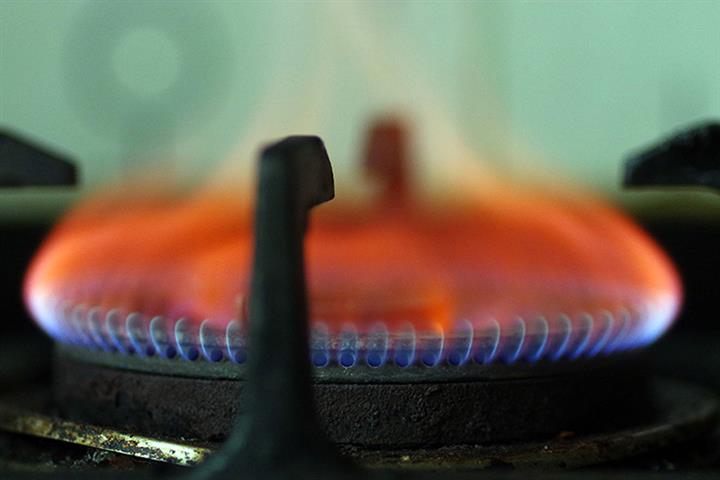 Parts of North China Run Short of Gas as Price Hikes, Extreme Cold Affect Supply
Parts of North China Run Short of Gas as Price Hikes, Extreme Cold Affect Supply(Yicai Global) March 1 -- Some areas of northern China have recently suffered a shortage of natural gas as a big jump in international market prices together with severe winter weather have made it difficult for local gas companies to meet demand.
Residents of Weinan city in northwestern Shaanxi province were sent a letter of apology by the city’s natural gas company on Feb. 25 saying that demand had surged due to heavy snowfall and a drop in temperatures earlier that month, causing some customers to have no gas during peak hours.
Places in Hebei province, which neighbors Beijing, had interrupted supply in the beginning and middle of last month, the Chinese government posted on its website.
Gas companies are also under great pressure as the price of liquid natural gas has jumped 25 percent over the past week and 75 percent over the past month to CNY8,383 (USD1,328) a ton, or CNY6 (USD0.95) per cubic meter, according to the Shanghai Petroleum and Natural Gas Exchange.
The winning bid at the LNG auction in Yinchuan, capital city of northwestern Ningxia Hui Autonomous Region, was CNY7.25 (USD1.15) per cubic meter on Feb. 14, according to data from the city’s development and reform committee. This was nearly double the local maximum retail price for non-residential use at CNY3.88 per cubic meter, and the retail price for residential use is even lower.
Most gas companies pen long-term supply contracts with fixed purchase prices and amounts with suppliers, an industry insider told Yicai Global. Although gas firms sometimes need to buy gas at market prices when actual demand is greater than the contracted supply, such a huge gap in prices makes them less willing to take part in auctions, leading to a supply shortfall.
"This round of hikes in natural gas prices is similar to last year’s rise in coal prices which led to coal-burning electric power plants unable to afford to buy coal and many shut down or severely cut operations leading to a national power shortage," Feng Yongsheng, associate researcher at the National Academy of Economic Strategy under the Chinese Academy of Social Sciences, told Yicai Global.
The difference between the two incidents is that China’s dependence on coal imports is very low, whereas for natural gas it stands at over 40 percent, making it difficult for government agencies to find solutions to guarantee supply and stabilize prices, Feng said.
Finding a Solution
Government agencies should cut taxes and fees and increase subsidies to get natural gas firms to ensure supply, said Lin Boqiang, head of the China Institute for Studies in Energy Policy at Xiamen University.
Areas where there are frequent shortages of gas should encourage the use of electric heating, Feng said. It is still necessary to improve operation and price mechanisms in order to ensure supply and stabilize prices through market-oriented means.
Chinese households accounted for 37 percent of the country’s natural gas consumption in 2020, while industries used 36 percent and the rest was consumed by natural gas power plants, according to the Chongqing Petroleum and Gas Exchange.
Editors: Tang Shihua, Kim Taylor